N.Ireland Unrest Muted After Death Of Britain's Prince Philip
Unrest in Northern Ireland abated on Friday night after a week of riots, as the death of Britain's Prince Philip dampened flaring tempers in the deeply divided province.
The worst unrest of recent years in the British ruled region has mainly stemmed from its pro-UK unionist community, angry over apparent economic dislocation due to Brexit and existing tensions with pro-Irish nationalist communities.
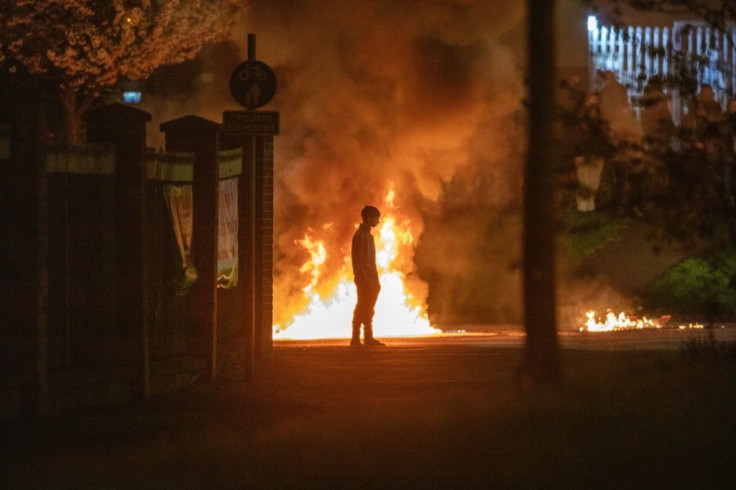
On Friday marches had been planned in unionist communities in the capital of Belfast but they were cancelled following the news that Philip -- the husband of Queen Elizabeth II -- had died.
A hastily erected placard in one unionist neighbourhood requested "protests are postponed as a mark of respect to the Queen and the Royal Family".
The placard promised "opposition" to conditions of Brexit "and all the other injustices" are to continue "after the period of mourning".
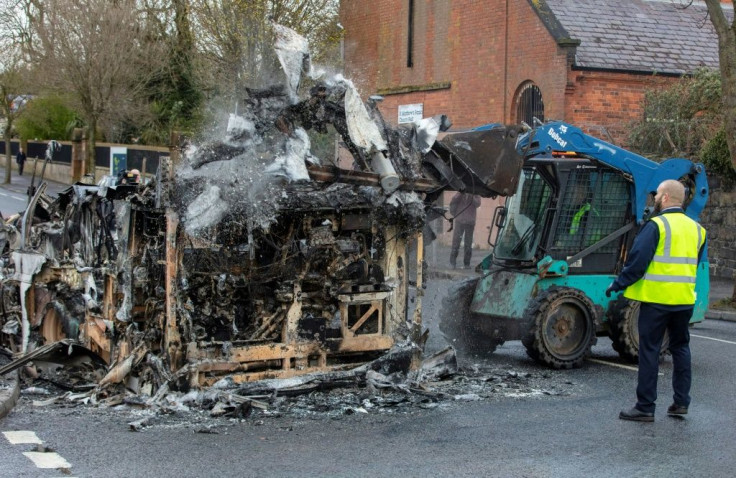
By mid-evening the streets of Belfast were far emptier than the previous night, when riot police on the nationalist side of divided Belfast were pelted with projectiles as they tried to prevent a crowd moving towards pro-UK unionists.
However there were clashes with police in one unionist enclave, seemingly on a smaller scale to Thursday night.
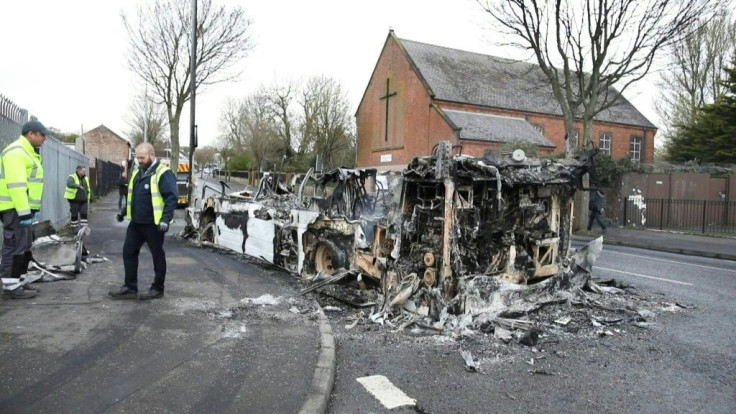
Earlier on Friday there had been fears of a dramatic escalation of conflict. The possibility remains that riots will continue later in the week.
One man living in the unionist community in Belfast showed AFP a message said to be circulating calling for "a major escalation over the weekend".
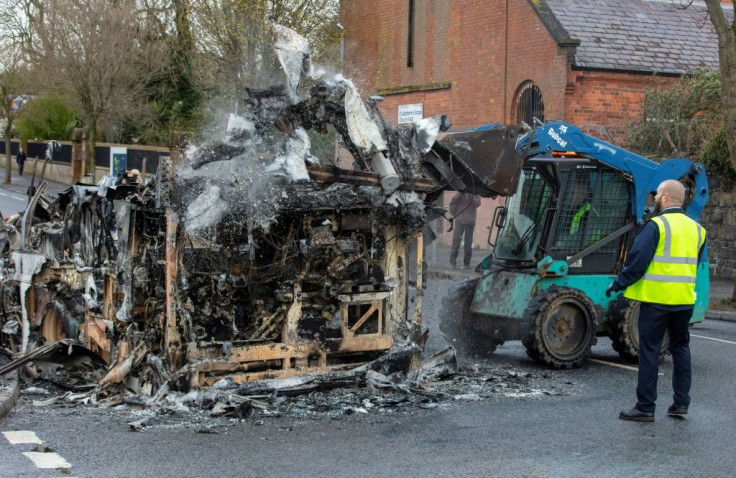
"I'm worried about the weekend ahead," Michelle O'Neill, Northern Ireland's deputy first minister and leader of nationalist party Sinn Fein, told reporters.
"I do think it's really incumbent upon us all to be very conscious of the fact that we need to be respectful of each other."
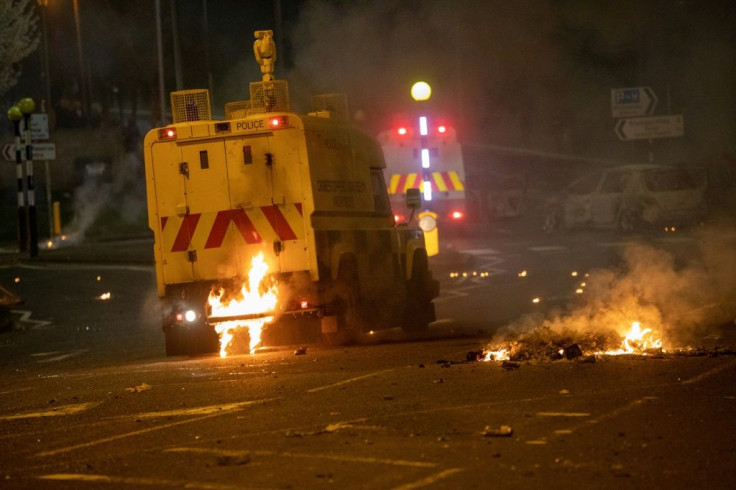
Despite similar appeals from Ireland, the United States and the European Union, crowds of hooded youths and young men have taken to the streets nightly, injuring at least 55 police officers and setting fire to a moving bus this week.
The UK's Northern Ireland Secretary Brandon Lewis met leaders including unionist First Minister Arlene Foster and O'Neill in Belfast but political appeals have so far failed to quell the unrest.
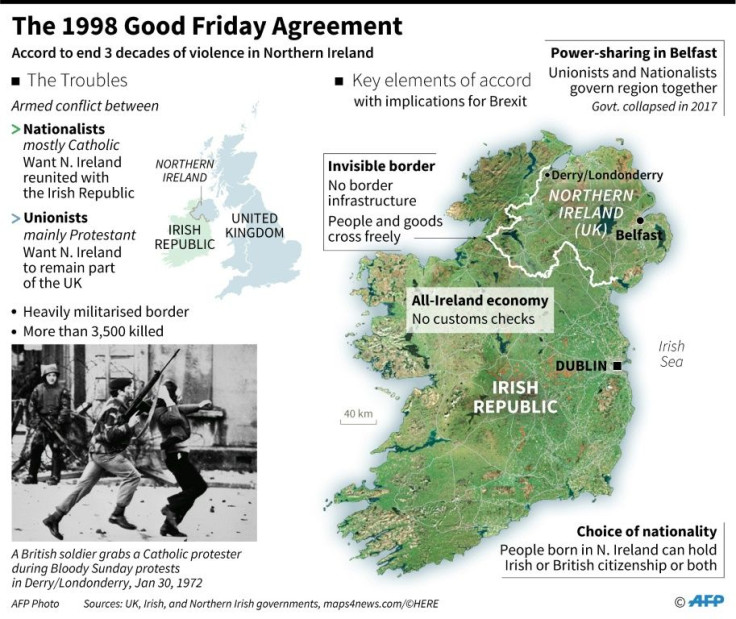
On Thursday night rioters hurled petrol bombs and fireworks at ranks of armoured police vehicles, as well as rocks, bricks and glass bottles.
Officers using water cannon for the first time in years drove back the surging crowds late into the night, as locals peered out of their windows to witness the spectacle.
Refusing to let rioters approach, dozens of older men and women stood at the gates of a "peace line" -- walls in Belfast separating nationalist and unionist communities.
On Wednesday night, the gates were set alight and police said crowds from either side broke through to attack each other with petrol bombs, missiles and fireworks.
Until a landmark peace deal in 1998, Northern Ireland endured 30 years of sectarian conflict that killed 3,500 people.
The accord let unionists and nationalists coexist by blurring the status of the region within the EU.
But Britain's 2016 vote to quit the EU revived the need for border checks on trade, potentially undermining the 1998 pact.
A special "protocol" was agreed that shifted controls away from the Irish land border to ports trading with the UK mainland. It took effect on January 1, prompting many unionists to accuse London of betrayal by diluting Northern Ireland's status in the UK.
There was also recent outrage among unionists after the authorities decided not to prosecute nationalist Sinn Fein leaders for attending a large funeral last year of a former paramilitary leader, in apparent breach of Covid restrictions.
"Brexit is a big part of it," one unionist -- who asked not to be identified -- told AFP of the recent unrest.
"I feel like the mainland UK have literally sold us out," he added. "A border down the Irish sea is another stepping stone towards a united Ireland."
Unionist Jim Matier, 74, said he believed the unrest was largely sparked by the Sinn Fein funeral decision.
But he said the Brexit protocol is part of a "slippery slope" emerging towards a united Ireland.
"Some of our politicians, I don't think are doing enough or saying enough," he said.
© Copyright AFP 2024. All rights reserved.





















